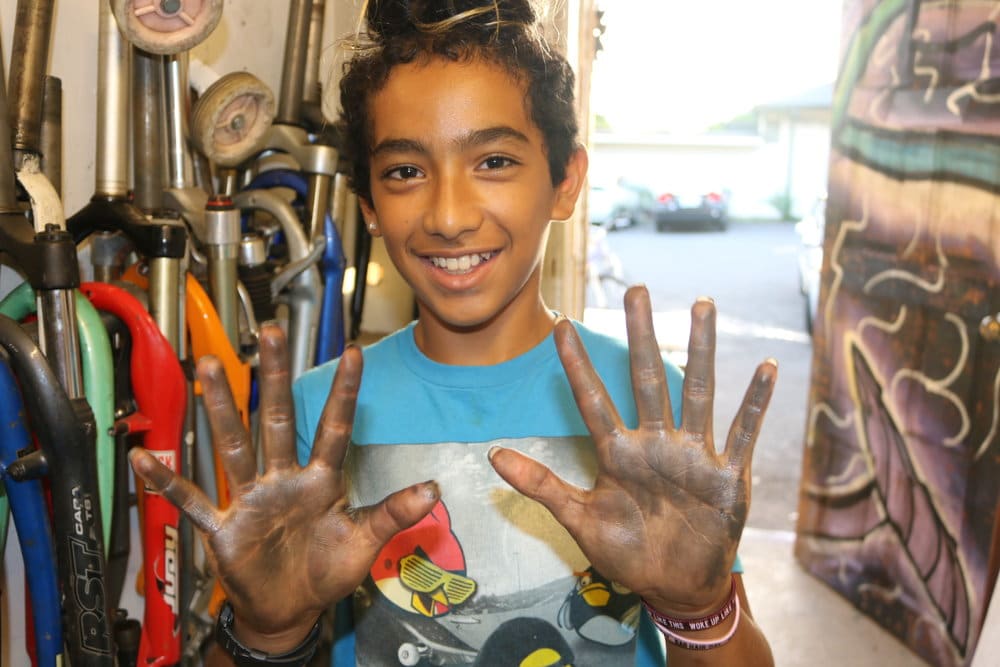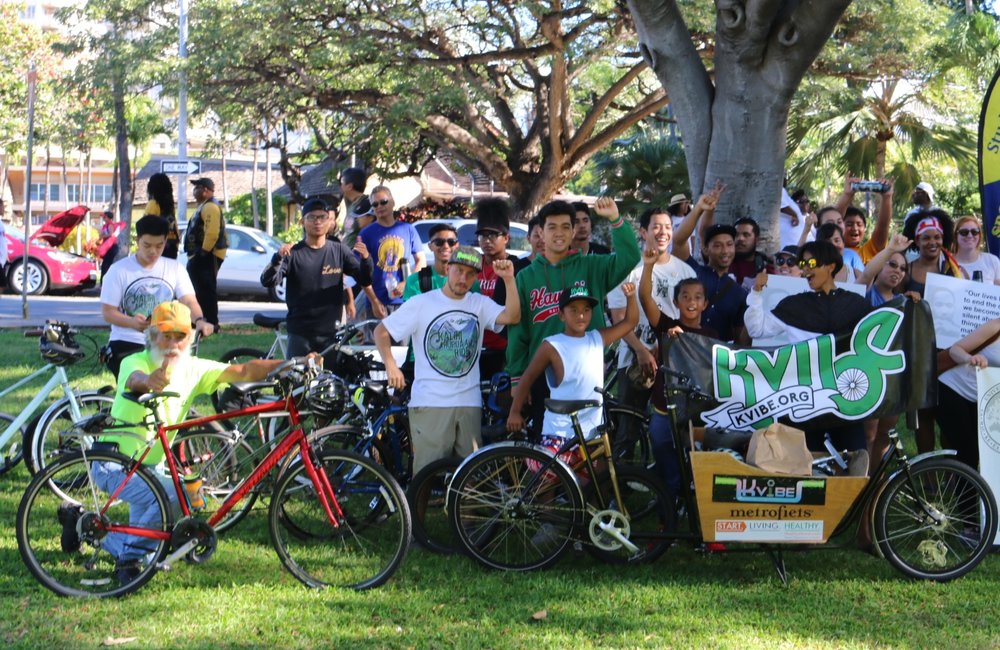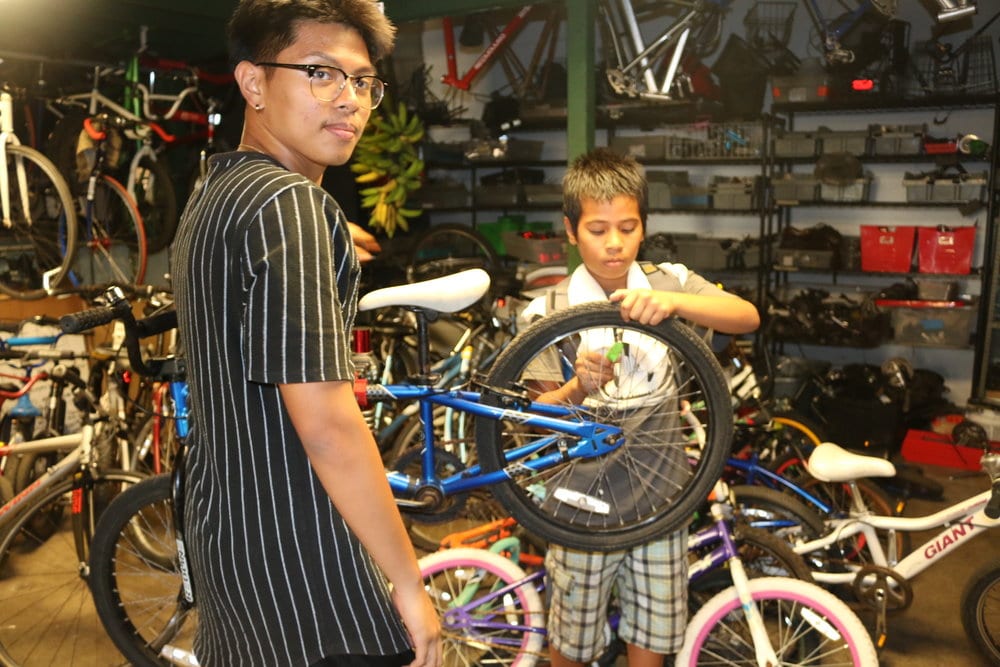Hawaii (Honolulu)
Owing to crime, the neighbourhood of Kalihi in downtown Honolulu, Hawaii, has a bad rap. That’s where KVIBE (Kalihi Valley Instructional Bike Exchange) and its community-making comes in.
Every afternoon, young men in the area participate in a ‘culture circle’ where they learn how to repair bikes.

The comprehensive community health centre addresses youths, many of whom are immigrants, and aims to improve community mental health and social cohesion. To strengthen their participants’ confidence and sense of identity, every session starts with an introduction round in which everyone needs to share their name, home and ancestors.
“Anyone who can say these things with confidence has love for themselves — this is mental wellbeing”, explains Jeffrey Acido, an education and training specialist who works with KVIBE.
KVIBE was born in 2005 out of an active living design grant that promoted physical activity in communities with a high rate of diabetes. Each year there are 400 donated bikes that are refurbished and about 4,000 bikes are repaired though 9,000 youth service hours.
The programme is based on the belief that social connection and physical activity directly link to mental wellbeing.
Kalihi Valley is suffering from wide structural inequality leading to poverty, loss of cultural identity and low educational attainment. As a result, many men and boys are at risk of depression, stress and chronic physical health conditions. KVIBE supports this part of the community in the valley that is often left out of the conversation about mental health, by focusing on sports and recreation programmes, and encouraging its participants to become mentors for young men and boys – to feel embedded in their community.
KVIBE is a program run by Kokua Kalihi Valley Comprehensive Family Services (KKV), which serves over 10,000 patients in the Ahupua’a (ancient land division) of Kalihi. In Kalihi, 93 percent of the 50,000 residents have Native Hawaiian, Asian and Pacific Islander ancestry. The area also has a high percentage of low incomes residents and public housing complex. KKV patients and staff alone speak over 27 languages.
An internship is an opportunity to apply bicycle concepts and mechanical theories learned during hands-on basic bicycle restoration. Plus, to apply bicycle metaphors to everyday life.
AtlasAction: Your donation allows KVIBE to connect people and create partnerships around Kalihi. “Mahalo for your support!”
Project leader
Dr. David Derauf, Executive Director, KKV and Kevin Faller, Program Manager
Support the Atlas
We want the Atlas of the Future media platform and our event to be available to everybody, everywhere for free – always. Fancy helping us spread stories of hope and optimism to create a better tomorrow? For those able, we'd be grateful for any donation.
- Please support the Atlas here
- Thank you!




